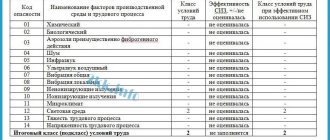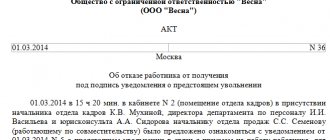The organization of work for disabled workers has a number of features related to the need to adapt the workplace and conditions for performing duties in accordance with the capabilities of the citizen. Depending on the cause of disability, a person may be limited in the performance of certain functions, and therefore, the employer may be required to carry out special work aimed at preparing workplaces for disabled people and providing comfortable working conditions for them. In this article we will tell you how an employment contract is concluded with a disabled person.
The rights of people with disabilities are protected by Russian legislation, in particular, laws oblige employers to hire a person with a disability, while creating proper working conditions for him. The number of vacant positions for people with disabilities in each organization is determined in accordance with the local legislative framework.
That is, each employer must have a certain number of jobs for persons with disabilities, and their number in each specific case is determined individually based on the adopted legislative acts of local authorities.
Employment of a person with a disability is necessarily accompanied by the conclusion of an employment contract, which has some features related to additional guarantees provided to disabled people in accordance with labor laws.
Hiring a disabled person
In order to employ a disabled person, the candidate must provide a number of mandatory documents:
- ID card (passport);
- work book (if you have work experience);
- SNILS (if you have work experience);
- TIN, education documents, military ID (if available);
- driver's license (if necessary).
An employee, at his own request, can provide documents confirming his disability (upon employment or during the work process).
The MES certificate, which confirms the disability group (1, 2 or 3) and contains information about the disabled person’s limitations at work (the degree of severity of work is indicated, the provision of special working and rest conditions) is issued for a certain period or indefinitely.
IPRA certificate (individual program of rehabilitation and habilitation) - contains information about the limitations in the work of a disabled person, based on the disease identified in the employee. The document specifies the work that the employee can perform depending on the degree of disability:
- 1st degree of disability - assigned to those disabled people who can perform their work duties only with the help of third parties or to such disabled citizens who are prohibited from working;
- 2nd degree of disability - assigned to disabled people who can perform their work duties if the employer creates special working conditions for them;
- 3rd degree of disability - assigned to a disabled person who can work under easier working conditions (reducing the intensity of work, the volume of work performed or qualification requirements).
Rights and obligations of the employer
3.1. The employer has the right:
— conclude, amend and terminate an employment contract with the Employee in the manner and under the conditions established by the Labor Code of the Russian Federation and other federal laws;
— conduct collective negotiations and conclude collective agreements;
— encourage the Employee for conscientious, effective work;
— require the Employee to fulfill his job duties and take care of the property of the Employer (including the property of third parties owned by the Employer, if the Employer is responsible for the safety of this property) and other employees, and compliance with internal labor regulations;
— bring the Employee to disciplinary and financial liability in the manner established by the Labor Code of the Russian Federation and other federal laws;
— adopt local regulations;
- create associations of employers for the purpose of representing and protecting their interests and join them;
— create a works council;
— [other rights provided for by the current Labor legislation
and other regulatory legal acts containing labor law standards, collective agreements, local regulations].
3.2. The employer is obliged:
— comply with the labor legislation of the Russian Federation and other regulatory legal acts containing labor law norms, local regulations, terms of the employment contract, agreements, collective agreement [if any];
This is important to know: Can a fixed-term employment contract become indefinite?
— provide the Employee with work stipulated by the employment contract;
— ensure safety and working conditions that comply with state regulatory requirements for labor protection;
— create working conditions for the Employee in accordance with the individual rehabilitation program;
— provide the Employee with equipment, tools, technical documentation and other means necessary to perform his job duties;
— provide the Employee with equal pay for work of equal value;
— pay the full amount of wages due to the Employee within the terms established in accordance with the Labor Code of the Russian Federation, the collective agreement [if any], internal labor regulations, and the employment contract;
— conduct collective negotiations, as well as conclude a collective agreement in the manner established by the Labor Code of the Russian Federation;
— provide employee representatives with complete and reliable information necessary for concluding a collective agreement, agreement and monitoring their implementation;
— familiarize the Employee, against signature, with the adopted local regulations directly related to his work activity;
— timely comply with the instructions of the federal executive body authorized to carry out federal state supervision over compliance with the labor legislation of the Russian Federation and other regulatory legal acts containing labor law norms, other federal executive bodies exercising state control (supervision) in the established field of activity, pay fines imposed for violations of the labor legislation of the Russian Federation and other regulatory legal acts containing labor law norms;
— consider submissions from the relevant trade union bodies, other representatives elected by employees about identified violations of the labor legislation of the Russian Federation and other acts containing labor law norms, take measures to eliminate the identified violations and report on the measures taken to the specified bodies and representatives;
— create conditions that ensure the Employee’s participation in the management of the organization in the forms provided for by the Labor Code of the Russian Federation, other federal laws and the collective agreement [if any];
— provide for the Employee’s everyday needs related to the performance of his job duties;
— carry out compulsory social insurance of the Employee in the manner established by federal laws;
— to compensate for damage caused to the Employee in connection with the performance of his labor duties, as well as to compensate for moral damage in the manner and under the conditions established by the Labor Code of the Russian Federation, other federal laws and other regulatory legal acts of the Russian Federation;
— [other duties provided for by the current Labor legislation
and other regulatory legal acts containing labor law standards, collective agreements, local regulations].
Labor relations with disabled people of groups 1, 2 and 3
By concluding an employment contract with a disabled person of group 1, 2 or 3 , the employer undertakes to arrange a workplace and provide working and rest conditions for an employee with health problems in accordance with the requirements of the IPRA.
The employment contract must indicate the duration of the disability. If a disability group is assigned to an employee not for life, but for a certain period of time, then the employer must monitor the date of re-examination. After the “recommission”, the employee’s disability group can be removed or changed. Based on this, changes must be made to the employment contract.
Preferential working and rest conditions for people with disabilities
Annual paid leave for disabled people is 30 calendar days (Article 23 of the Law “On Social Protection of Disabled Persons” No. 181-FZ of November 24, 1995). Leave without pay at the request of an employee can be up to 60 days (Article 128 of the Labor Code of the Russian Federation) and the employer does not have the right to refuse this.
When concluding labor relations with disabled people of groups 1, 2 and 3, it is worth remembering that the employer does not have the right to involve such workers in fulfilling labor obligations after hours and at night without his personal consent. Therefore, if the position held by a disabled person requires overtime hours or night shifts, this nuance must be specified in the employment contract. For example, “The employee agrees to work at night. The employee is aware of his right not to go to work at night.” Also, it is worth noting that such work may be prohibited by a medical certificate (Articles 96, 99 of the Labor Code of the Russian Federation). Then, even with the personal consent of the employee, the employer should not involve the disabled person in “overtime” and night shifts.
Work of disabled people on weekends and holidays is also regulated by law and is provided only with the written consent of the employee and in the absence of a prohibition due to health reasons.
Reducing working hours for disabled people:
- for disabled people of group 3, there is no reduction in working hours unless this benefit is specified in the IPRA certificate;
- for disabled people of groups 1 and 2, the maximum working time is no more than 35 hours per week (7 hours per shift) with days off on Saturday and Sunday (Article 92 of the Labor Code of the Russian Federation). But in an individual rehabilitation and habilitation program, the norm may be limited to 6 hours per shift. This information must be specified in the employment contract.
It is worth noting that the employer does not have the right to change the salary or tariff rate of a disabled person due to a reduction in working hours.
Rights and responsibilities of an employee
2.1. The employee has the right to:
— conclusion, amendment and termination of an employment contract in the manner and under the conditions established by the Labor Code of the Russian Federation and other federal laws;
- providing him with work stipulated by the employment contract;
— a workplace that meets state regulatory requirements for labor protection and the conditions provided for by the collective agreement [if any];
— timely and full payment of wages in accordance with their qualifications, complexity of work, quantity and quality of work performed;
— rest provided by the establishment of normal working hours, reduced working hours for certain professions and categories of workers, the provision of weekly days off, non-working holidays, paid annual leave;
— complete reliable information about working conditions and labor protection requirements in the workplace;
— training and additional professional education in the manner established by the Labor Code of the Russian Federation and other federal laws;
— association, including the right to create trade unions and join them to protect their labor rights, freedoms and legitimate interests;
— participation in the management of the organization in the forms provided for by the Labor Code of the Russian Federation, other federal laws and the collective agreement [if any];
— conducting collective negotiations and concluding collective agreements and agreements through their representatives, as well as information on the implementation of the collective agreement and agreements;
— protection of one’s labor rights, freedoms and legitimate interests by all means not prohibited by law;
— resolution of individual and collective labor disputes, including the right to strike, in the manner established by the Labor Code of the Russian Federation and other federal laws;
- compensation for harm caused to him in connection with the performance of his job duties, and compensation for moral damage in the manner established by the Labor Code of the Russian Federation and other federal laws;
— compulsory social insurance in cases provided for by federal laws;
— [other rights provided for by the current Labor legislation
and other regulatory legal acts containing labor law standards, collective agreements, local regulations].
2.2. The employee is obliged:
— conscientiously fulfill his labor duties assigned to him by the employment contract;
— comply with internal labor regulations;
— maintain labor discipline;
— comply with established labor standards;
— comply with labor protection and occupational safety requirements;
— take care of the property of the Employer (including the property of third parties held by the Employer, if the Employer is responsible for the safety of this property) and other employees;
— immediately inform the Employer or immediate supervisor about the occurrence of a situation that poses a threat to the life and health of people, the safety of the Employer’s property (including the property of third parties held by the Employer, if the Employer is responsible for the safety of this property);
— [other duties provided for by the current Labor legislation
and other regulatory legal acts containing labor law standards, collective agreements, local regulations].
Quotas for hiring disabled people
The quota for hiring disabled people obliges employers to employ people with disabilities (Article 21 of the Federal Law of November 24, 1995 N 181-FZ). For large enterprises with a staff of 100 or more people, the rate of disabled employees should be 2–4%. (depends on the subject of the Russian Federation and the average number of enterprises). At the same time, quota vacancies should not provide for harmful and dangerous working conditions .
The employer is obliged to provide data on employed disabled people to the territorial body of the employment service, that is, to record the fact that the quota has been fulfilled.
If the employer is unable to independently organize the hiring of a disabled person, then he can submit a request to a non-profit association of disabled people. He will be offered candidates who meet the requirements of the open positions.
Job quotas for disabled people
Disabled people are a segment of the population that requires increased protection from the state. This category includes those individuals who, due to impaired body functions, have various limitations in their capabilities.
A citizen who is recognized as disabled must have appropriate documentary evidence from a medical and social examination, which indicates the disability group. The limited functional capabilities of disabled people, as a rule, make employers want to give preference to those persons who do not have such limitations.
To guarantee the opportunity for people with disabilities to realize themselves in work, quotas for jobs have been introduced for this category of citizens. Its essence is to provide a certain number of special jobs by each employer for the employment of disabled people.
Specific minimum values of vacancies for the category of persons under consideration are established by the constituent entities of the Russian Federation. At the state level, boundaries are determined as a percentage of the average headcount of the organization, within which the number of special jobs can vary:
- 2-4% – with a number of 35 to 100 employees;
- Up to 3% – with more than 100 employees.
For example, in Moscow this figure for employers with more than 100 employees is 2%, and in the Leningrad region for similar organizations it is 3%. In accordance with the quota, the employer must approve a local act on the creation of jobs for people with disabilities.
Workplaces for disabled people must be prepared and adapted to the employee’s capabilities and equipped with the necessary equipment.
The employer must report monthly availability of vacancies for disabled people to the employment center. This information is used to select a suitable candidate for the position.
Terms of payment
5.1. The employee is paid a salary of [amount in figures and words] rubles.
5.2. Additional payments and allowances of a compensatory nature, including for work in conditions deviating from normal conditions, systems of additional payments and incentive allowances and bonus systems are established by a collective agreement, agreements, local regulations and other regulatory legal acts containing labor law norms.
5.3. Wages are paid to the Employee [indicate specific dates of the calendar month]./ Wages are paid to the Employee at least every half month on the day established by the internal labor regulations.
5.4. When performing work outside the normal working hours, at night, on weekends and non-working holidays, when combining professions (positions), when performing the duties of a temporarily absent employee, the Employee is paid appropriate additional payments in the manner and amount established by the collective agreement and local regulations.
5.5. During the period of validity of this employment contract, the Employee is subject to all guarantees and compensation provided for by the current labor legislation of the Russian Federation.
Final provisions
7.1. Disputes between the Parties arising during the execution of this employment contract are considered in the manner established by the Labor Code of the Russian Federation and other federal laws.
7.2. In all other respects that are not provided for in this employment contract, the Parties are guided by the legislation of the Russian Federation governing labor relations.
7.3. The employment contract is concluded in writing, drawn up in two copies, each of which has equal legal force.
7.4. All changes and additions to this employment contract are formalized by a bilateral written agreement.
7.5. This employment contract may be terminated on the grounds provided for by the current labor legislation of the Russian Federation.






